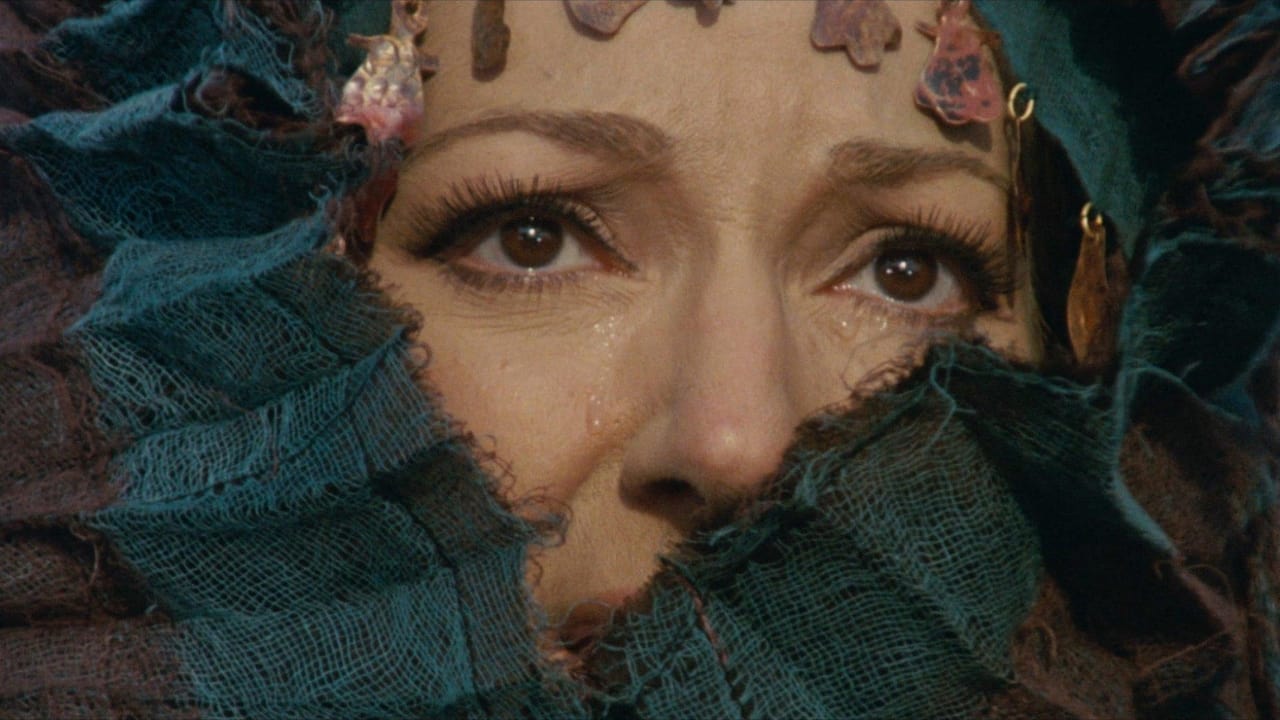Matcollis
This Movie Can Only Be Described With One Word.
WasAnnon
Slow pace in the most part of the movie.
Adeel Hail
Unshakable, witty and deeply felt, the film will be paying emotional dividends for a long, long time.
Ariella Broughton
It is neither dumb nor smart enough to be fun, and spends way too much time with its boring human characters.
Tyson Hunsaker
Medea feels like one of Pier Pasolini's more obscure and lesser known works. Being overshadowed by some of his heavyweights and more controversial films, Medea can be easily forgotten and tossed aside. This is unfortunate seeing how unique this film feels. What feels riveting about Medea is one: our lead's performance is outstanding. She plays Medea with utmost confidence and terror that paints a memorable portrait of a character that's unforgettable. Two: while camera work seems to break necessary rules, the audience feels unusually drawn to what's inflame due to great locations, excellent production design for its time, and it's dramatic dialogue. Unfortunately the dialogue does feel too good on paper and nowhere else which can take the viewer out of the experience. Like something written as a novel first which wasn't meant to be adapted in the first place. The film explores fascinating themes like jealousy, betrayal, relationships, etc. The story explores feminism in a way that could be beneficial to see. The viewer sees this in a strong and empowering way and also in extreme and harmful ways. Medea has both good and not so good examples of women's liberation. While Medea represents a strong genuinely fierce woman who is a force to be reckoned with. She comes across distant from other characters who she should be closer with; like other members of her family. Medea's passion and determination to achieve her goal I can imagine is refreshing to see when many female characters are portrayed as supporting and passive ones. Especially for a 1969 audience (which is the film I saw of the story), seeing a woman with that much drive and ability to excel probably felt invigorating. In fact, much of her character feels threatening almost to her counter male characters who don't see her for what she would like to be seen as. Unfortunately since most of the characters don't provide the "respect" she feels and frankly, we feel she might deserve, she's given less. Much less. I think this is where the story flips when this unfair misunderstanding makes things too unbearable for Medea. As she is tossed aside for another wife for Jason, she's seen as a tool or a means to an end and this is where I think, she takes it too far and removes herself from the title of "heroin."Her almost ruthless nature unravels when she kills her own children which is not only extreme but there is fundamentally something psychopathic when we imagine a mother killing her own child for selfish reasons. Arguably the most genuine and strongest bond we can imagine in human relationships is between a mother and her child. I think this is when her character changes in the viewer's eyes. We don't sympathize with her anymore and really question her sanity. She murdered her own children out of spite for her husband!I've wondered why Pasolini chose to write such a story and I think I have two theories: One, I think he might've been thinking about the innate power and determination women actually have. Perhaps it was a cautionary tale essentially saying "Don't mess with the women, they can actual tear you apart." Maybe he foresaw a time where women would strike back due to oppression and unequal treatment. My second theory is that maybe he's not very sympathetic to the female sex at all. Maybe he was attempting to suggest women will be the death of us if they are not "kept in check." Honestly I would like to think the first option but knowing Pasolini's other works and his seeming disregard for many good qualities of humanity in his films, I don't know how much I'd bet on it. Ultimately I wouldn't recommend it to examine female liberation but it is worth checking into for a discussion anyway.For film buffs, this one is checking out but maybe won't be the best example to examine closely. Technically and structurally there are moment-ruining flaws that are difficult to get over and with he exception of our lead, performances aren't extremely impressive. Definitely not for everyone.
Frederick Malouf
Wow. Pretty amazing. Pier must have been a bit tame with this considering his later work.Anyway, I just had to say that Maria Callas is gorgeous in this film.If you needed proof that intense, emotional women are intoxicating, then this shows it. Really strong performance. Very instinctive. It's worth watching the film just to see her, and the photography that makes that so captivating.Pier is a new discovery for me. An intense man.Well worth the watch.
jaibo
Incredibly abstruse visualisation of the myth, allowing Pasolini to explore the conflict - a psychological and social conflict - between an older order of magic and the new order of reason and "civilisation". Jason needs Medea, repository of occult knowledge and superstitious practise, to help establish his rule; when he gets there, she is side-lined, and takes a terrible revenge. The storytelling here is oblique and elliptical, full of gorgeous images, sensual locations and sounds the like of which human ears rarely get to hear, full of ululations and Dionysian frenzy.The most intriguing segments involve Jason's relationship with his mentor, the centaur, who appeared in his childhood as a horse-man and his adulthood in normal human form, but the horse-form remains as a mythic trace once childhood is departed.The athlete Pasolini casts as Jason does well, physically scrumptious as he is and with the requisite banal arrogance; the casting of Maria Callas as Medea is more problematic - she's so obviously the product of the higher echelons of civilised culture that it is impossible to see her as a primitive force - her presence threatens to turn the film into a jaded millionairess' arty home movie. Still, if you try to ignore her patrician features and over-indulgent false-eyelashes, there's plenty of Pasolinian delights on display, and hardly anything in the film you would be able to see in anyone else's version of cinema.
dbdumonteil
Pasolini began his revisiting of the old myths with "gospel according to St Matthews" ,perhaps the best rendition of Christ's life on the screen,then tackled the Greek legends ,first "Edipe Re" then "Medea"."Edipe Re" was framed by a prologue and an epilogue which took place in this day and age."Medea" displays two worlds colliding:Jason's one,a rational world where science begins to surface,and Medea's one,which is that of superstition,magic, a world that is to disappear.The legendary Golden Fleece is nothing but an old rag.And Pasolini does not show the ending of the legend when Medea flies away on her chariot;it's neither a Hollywoodian film ,nor one of those peplums Italian directors used to make by the dozen ten years before.The centaur -played by earnest thespian Laurent Terzieff- ,the only concession to some kind of show,looks like an ordinary character.Some users pointed out the primitive side of the background.But let's not forget that there are two degrees:Medea's world is primitive to the core;Jason's one is attaining what we call civilization.

